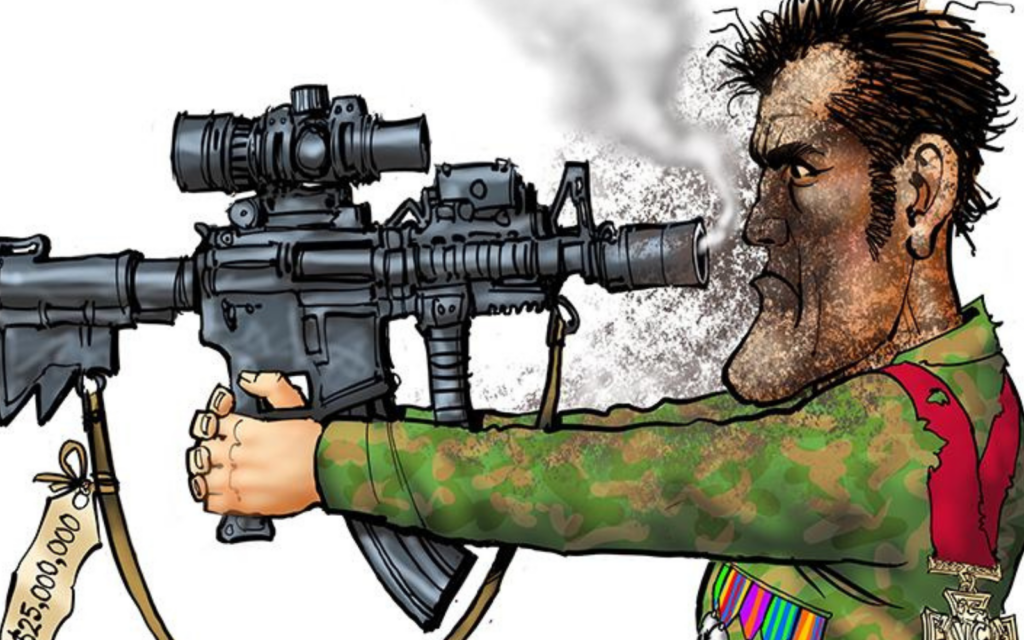“You have some evil parents, that is fantastic,” chuckles David Lamb, who has the title role in the Australian Shakespeare Company’s upcoming production of Henry IV, when I tell him of my name. “The thing I liked most about the role is that he eventually becomes King Henry the Fifth. Prince Hal, his character arc is, in my mind, one of the greatest in Shakespeare’s entire canon, because he presents, I think, as one of Shakespeare’s only true heroes. At the start of this play, he’s a bit of a layabout – he is drunk all the time, he is whoring around, he is spending his time with ruffians and unlikable types. So throughout this play you see the beginning of his journey to become a war king and, both historically and in fiction, one of the most successful and well-loved kings that England ever had. That is a really fascinating thing to play, and within this show we get turning points of the character and his choice to become something better than what he is, which is really interesting.”
David is a Melbourne boy, having grown up in Macedon, and studied acting at Western Australian Academy of Performing Arts, graduating in 2009. “This is the biggest thing I have ever undertaken,” he confesses of his starring role. “It is great to work with such dense text, such expressive text and to work with a bunch of people who love it as much as I do and have been working at it for a while, learning from their experience. Working in the Athenaeum, it’s a stunning theatre, it’s one of the oldest in Melbourne, it’s got beautiful acoustics, it works for the actor, it’s just a joy to be on that stage.”
As a play, it is a hard sell for those that haven’t seen it before. It is the second play in Shakespeare’s tetralogy dealing with successive reigns. The plays are of Richard II, Henry IV (part 1 and 2), and Henry V. Getting people along to a second of four plays isn’t easy, even for the star. “I was trying to explain it to my father, who is just not a fan of Shakespeare, he doesn’t like it at all,” David laughs. “He said, ‘I have never seen Henry IV, never heard of it, why should I see it?’ So, I think the brilliance of it is that you don’t expect it, you don’t have any assumptions, it’s not Hamlet, it’s not Macbeth. You can’t quote the speeches, there are maybe a couple of lines that have found their way into our modern vocabulary but it is some of the clearest and most impassioned text – the tenderness of the character, the youth and naivety that he has. In Henry V, when he is king and he leads England to war with France, he is assured and confident, he has doubts in private, but you get to see much more of that indecisiveness in Henry IV. The way that he learns to control the court through the microcosm of the tavern and the people there, it is a really interesting thing to play, a young boy basically, finding his way to be a man, knowing that he will eventually have to find his way to becoming a king. It’s fascinating.”
It is the different worlds within the play that formed part of the reason Glenn Elston – director and founder of the Australian Shakespeare Company – tackled the play. “It is a brilliant piece of writing that manages to run three separate worlds, each one of them is very intense and very interesting,” Glenn says of Henry IV. “There is the world of the tavern, where Falstaff rules supreme, that world is fast and loose, they go robbing people and drink, they visit the bordello, everyone is happy and having a great time. Then you have the world of the court, which is incredibly intense and political, the king is not happy or secure, a revelation brewing. The third world is the rebels, who are trying to start a revelation. And these three worlds come together on the battlefield. This is were the genius comes in, a really great story with humour, tension, passion ending with a war that changes history.”
The historical context of the play is also an aspect that David has focused on in crafting his performance. “If you look at our modern society, we are dealing with another disposed leader, another groundswell of political unrest, and that is what is presented in this play. This was possibly in England, one of the first recorded times of political unrest, where the revolution came from all around. Kings were disposed, causing flow-on. What we see in these plays is individual men making choices that affect the world. The repercussions make their way to France, with the 100 years war. I think it shows us something that we can look at today and maybe make some different choices about how we live our lives.”
The Australian Shakespeare Company’s Henry IV Part 1 is on at the Athenaeum Theatre from Wednesday May 16 through Saturday May 26. It’s a cracker and if you are in Year 12, it’s on the damned reading list this year, so just cheat and see this.
BY JACK FRANKLIN







